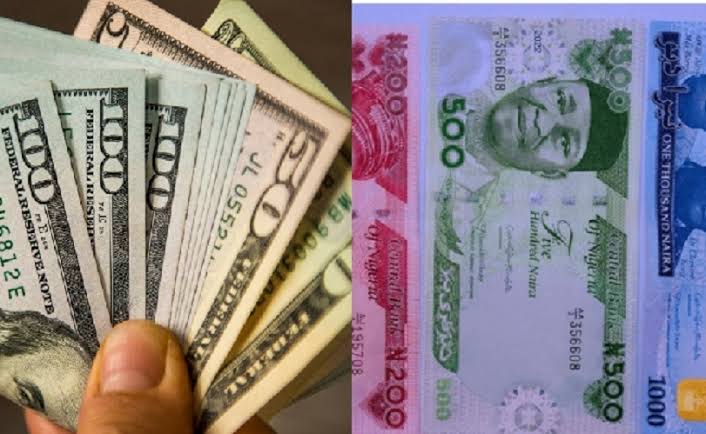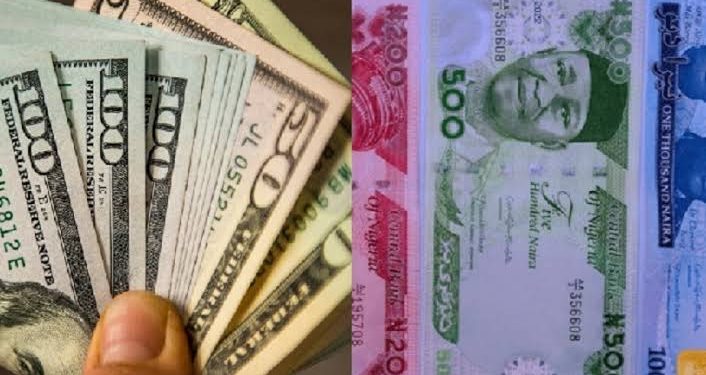The relentless depreciation of the Naira against major international currencies, particularly the US Dollar, continues to be a profound source of concern and hardship for millions of Nigerians. With the exchange rate hovering around N1,540/$ (as of late July 2025), the local currency has shed significant value, triggering a cascade of economic challenges that impact everything from household budgets to business viability and national development. This blog post explores the causes, widespread effects, and potential paths forward in navigating this turbulent financial landscape.
The Unyielding Slide: What’s Driving Naira’s Depreciation?
The Naira’s weakening is not a sudden phenomenon but the culmination of several persistent and evolving factors:

- Reliance on Oil Revenue: Nigeria’s economy remains heavily dependent on crude oil exports, which account for approximately 90% of its foreign exchange earnings. Fluctuations in global oil prices directly impact the inflow of dollars. When oil prices are low or production is hampered (due to issues like oil theft), dollar inflows diminish, putting immense pressure on the Naira.
- Demand-Supply Imbalance: Nigeria has a significant appetite for imported goods – from refined petroleum products and machinery to food items and consumer durables. This high demand for foreign exchange for imports consistently outstrips the available supply of dollars, creating a fundamental imbalance that drives the Naira’s value down.
- Speculative Activities and Hoarding: Speculation in the foreign exchange market, where individuals and businesses hold onto dollars in anticipation of further depreciation, exacerbates the scarcity of the greenback. This hoarding creates an artificial shortage, pushing the exchange rate higher.
- Inconsistent Policies and Lack of Investor Confidence: A history of multiple exchange rate windows, sudden policy shifts, and perceived inconsistencies in economic management have often deterred foreign direct investment (FDI) and portfolio investment. When foreign investors are hesitant to bring in their dollars, the supply of forex remains constrained.
- Fiscal Deficits and Borrowing: Large government fiscal deficits, often financed through borrowing, can also contribute to inflationary pressures and reduce confidence in the local currency.
ALSO READ: https://nationscuriosity.com/nigerias-soaring-cost-of-living-a-nation-un/
- Global Economic Shocks: External factors, such as global interest rate hikes (making dollar-denominated assets more attractive) and geopolitical tensions, can also indirectly impact capital flows into emerging markets like Nigeria.
The Ripple Effect: How Nigerians are Bearing the Brunt
The depreciation of the Naira has far-reaching consequences that permeate every facet of Nigerian life: - Soaring Inflation and Eroding Purchasing Power: This is perhaps the most immediate and painful effect for the average Nigerian. As the Naira loses value, the cost of imported goods, including essential commodities, skyrockets. Manufacturers who rely on imported raw materials or machinery also face increased production costs, which are then passed on to consumers. This inflationary spiral erodes the purchasing power of salaries and savings, making it increasingly difficult for households to afford basic necessities like food, medicine, and transportation.
- Increased Cost of Living: Rent, transportation fares, and even locally produced goods that have imported components see price hikes. This disproportionately affects low-income households and those on fixed incomes, pushing more people into poverty.
- Challenges for Businesses: Small and Medium-sized Enterprises (SMEs), which are the backbone of the Nigerian economy, are particularly vulnerable. Many depend on imported inputs, and the higher cost of foreign exchange makes their operations expensive and often unprofitable. This can lead to business closures, job losses, and a stifled entrepreneurial environment. Businesses engaged in international trade face unpredictable costs and revenue volatility, making financial planning a nightmare.
- Brain Drain and Emigration: The economic hardship fueled by Naira depreciation is a significant factor contributing to the increasing “japa” (emigration) phenomenon. Nigerians, especially skilled professionals, seek better economic opportunities and a higher quality of life in countries with more stable currencies and stronger economies. This exodus of talent further depletes the nation’s human capital.
- Debt Burden: For a country with significant foreign currency-denominated debt, a weaker Naira means that more local currency is required to service these debts, putting additional strain on government finances.
- Reduced Investment: Both local and foreign investors become wary of investing in an economy with a volatile and depreciating currency, leading to a decline in investment flows crucial for economic growth and job creation.
Navigating the Storm: Potential Paths to Stability
Addressing the Naira’s depreciation requires a multi-pronged, sustainable approach: - Diversification of the Economy: Reducing the over-reliance on oil exports is paramount. Investing in and promoting other sectors like agriculture, manufacturing, technology, and solid minerals can increase non-oil foreign exchange earnings.
- Boosting Local Production: Encouraging and supporting local industries to produce goods that are currently imported can significantly reduce the demand for dollars. This requires creating an enabling environment for businesses, including access to affordable credit, reliable power supply, and improved infrastructure.
- Attracting and Retaining Foreign Investment: Implementing consistent, transparent, and investor-friendly policies, coupled with a stable macroeconomic environment, is crucial to attract much-needed foreign direct and portfolio investments. Addressing issues like ease of doing business and security can also boost investor confidence.
- Prudent Fiscal and Monetary Policies: The Central Bank of Nigeria (CBN) and the fiscal authorities must work in synergy to implement sound monetary and fiscal policies. This includes managing inflation, maintaining a unified and transparent exchange rate system, and reining in government expenditure.
- Curbing Speculation: Stricter enforcement against speculative activities and improving liquidity in the official forex market can help bridge the gap between official and parallel market rates.
- Diaspora Remittances: While already a significant source of foreign exchange, exploring ways to further encourage and channel diaspora remittances through official channels could provide a more stable inflow of dollars.
The depreciation of the Naira is undoubtedly a significant concern, casting a long shadow over the economic well-being of Nigerians. While the challenges are formidable, a concerted effort from the government, private sector, and citizens, focused on long-term structural reforms, economic diversification, and disciplined policy implementation, offers the best hope for stabilizing the Naira and fostering sustainable economic growth in Nigeria. The road ahead may be tough, but with strategic foresight and unwavering commitment, a more resilient and prosperous future for Nigeria remains within reach.


